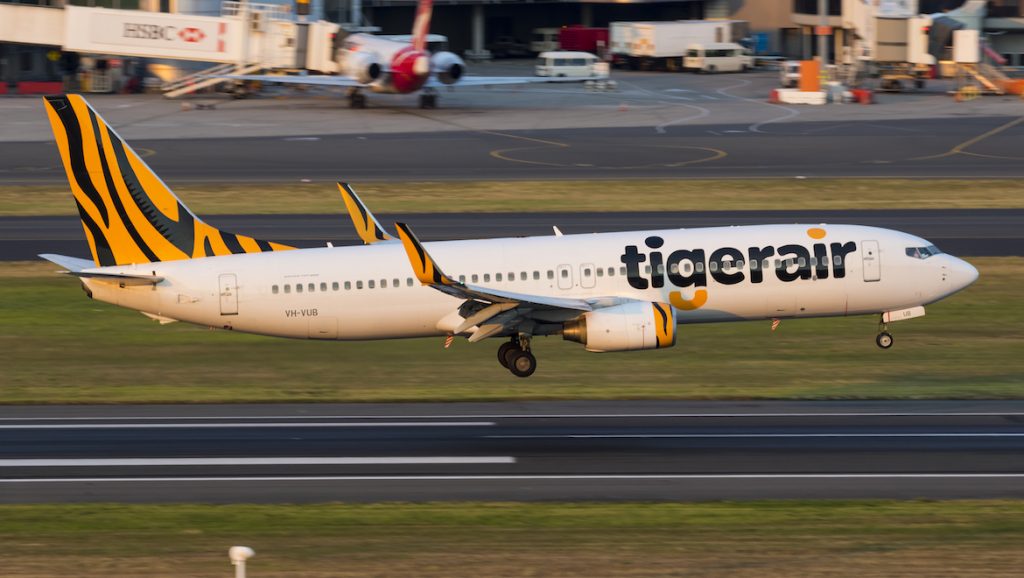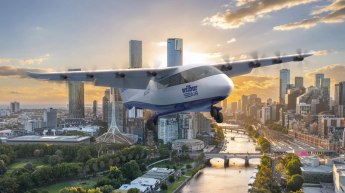
Virgin Australia’s administrator Deloitte has highlighted a “misconceived business strategy” to shift away from being a low-cost carrier as one of the main reasons for the business’ troubles.
The comments were contained in a 192-page report sent to creditors, obtained by Australian Aviation, which includes a section detailing the pitfalls of the business as judged by “widespread commentary” over the last decade.
The document was released on Tuesday alongside a statement to the ASX where Bain confirmed the return different groups of creditors would receive. Significantly, it revealed unsecured creditors, including bondholders, will receive between just nine and 13 cents in the dollar on their investment.
The ‘commentary’ section of the report aims to consolidate what are widely regarded as the reasons for Virgin’s problems over the years based on speculation. However, the administrator’s decision to edit and highlight them will be seen as significant.
It began by revealing the wider Virgin Australia Group suffered a consolidated loss for more than $2 billion between 2009 and 2020 and then stating:
“It was generally held to be underperforming from a financial performance perspective for a significant period compared to its peers, usually Qantas, with the common and interrelated themes as follows:
“Misconceived business strategy to change its business model from a low-cost carrier to a full-service airline. This ultimately resulted in Virgin increasing its capacity on certain routes. Qantas responded by taking action to protect its routes, market share, customer base and ultimately, its business model. Qantas was able to significantly reduce its cost base but Virgin did not have the size and financial strength to sustain this capacity increase without suffering significant losses.
“Higher cost base compared to competitors, including Qantas. One of the common measures used in the aviation industry is cost of available seat kilometre (CASK). This is the unit cost, expressed as cents, to operate each seat for every available seat kilometre. Controlling CASK is critical given the aviation industry is subject to high revenue volatility from a range of external factors including local and global economic conditions, exchange rate movements, fuel price movements and competitor pricing.
“Network strategy and decisions including the continued operation of loss-making services, routes and business segments.
“Operational inefficiencies including high labour costs and the number of different plane types.
“History of under-delivering on turnaround strategies.”
In a statement made to the ASX on Tuesday morning, Bain confirmed the full details of their offer to take control of the airline, which will need to be rubber-stamped by creditors in a crunch meeting on 4 September. It revealed that:
- The total commitment of Bain is $3.5 billion;
- All employee entitlements will be paid in full;
- All customers travel credits will be honoured;
- Bain will repay a “significant portion” of secured debts and aircraft lease debts; and
- Will return between $462 million and $612 million to unsecured creditors.
Deloitte’s Vaughan Strawbridge, who has overseen the administration process, said the deal represents an “excellent outcome” for Virgin Australia.
















Mitchell
says:So, when Bain ‘uses up’ its’ commitment of $3.5bn, which’ll be gone within 2-3 years’, are they going to then sell it as ‘going concern’?
There’s no mention of ‘ongoing funds’, as yet.
Times’ ahead should be interesting, to say the least with this mob.
I hear on the ‘airwaves’ that multiple staff are getting out, voluntarily, before Bain possibly takes the ‘joy stick’. That’s a worry right there.
Martin
says:Previous VA CEO, John Borghetti, after a previous 36 years’ with QF, wanted a ‘twin’ of it.
Obviously with Branson’s approval, he went full steam ahead with FF, Lounges, Business Class, chasing Corporate flyers’ $$ etc.
But that’s not what the paying public wanted in an LCC.
So his ideas failed miserably.
Why did not the Board Members put a stop to his ‘pipe dreams’?
It’s so sad to see a business go bust, especially for the 1000’s of hard workers’ at the coal face.
Adrian P
says:How much has the taxpayer pumped into the business using job keeper and does it exceed what is currently on offer to buy the company?
Jay
says:Bain aren’t going to invest 3.5 billion in the airline to sell within 2-3 years.
AgentGerko
says:The biggest reason for VA’s failure as a full service carrier was the inability to gain a bigger share of corporate travel, in particular Aust Govt travel. With the national govt travel agent being Qantas Business Travel and the reluctance by corporates to make their staff take best fare rather than chasing their QF points, VA was always behind the eight ball. As always, Mr Joyce promotes a level playing field only when its his team that contains all the best players.
David
says:Was Virgin Australia trading whilst insolvent?
Linda Weaving
says:The change in the business model that brought Virgin down was instigated by management. So why on earth are they reinstating the same management team? Isn’t it usual in business to sack incompetent staff? Crazy!
Aiden
says:To Jay above…….
By your comment, unfortunately, you’ve no idea what the business type Bain is.
Nothing’s been contractually signed YET, so they may change their mind on how much they’ll inject into a dead airline, or what plans they’ve for it.
It ain’t t over!
Paul
says:So, HONESTLY, at what point is John Borghetti, the Board and his management team held accountable for the corporate negligence Unearthed by Deloitte in the running of the airline that has left 9000 workers, either looking down the barrel or being made to reduce their pay and conditions to fight another day? COVID hasn’t helped but, Companies don’t go under due to pay and conditions they go under due to mismanagement and poor management decisions for which they had advice on but failed to listen!!! Yet it’s the staff that pay the price!! They (management) leave on massive payouts and go sip Lattes. It has to stop!!!
Neil
says:The independent Board members did absolutely nothing to serve the interests of the nine-percent free float on the ASX.